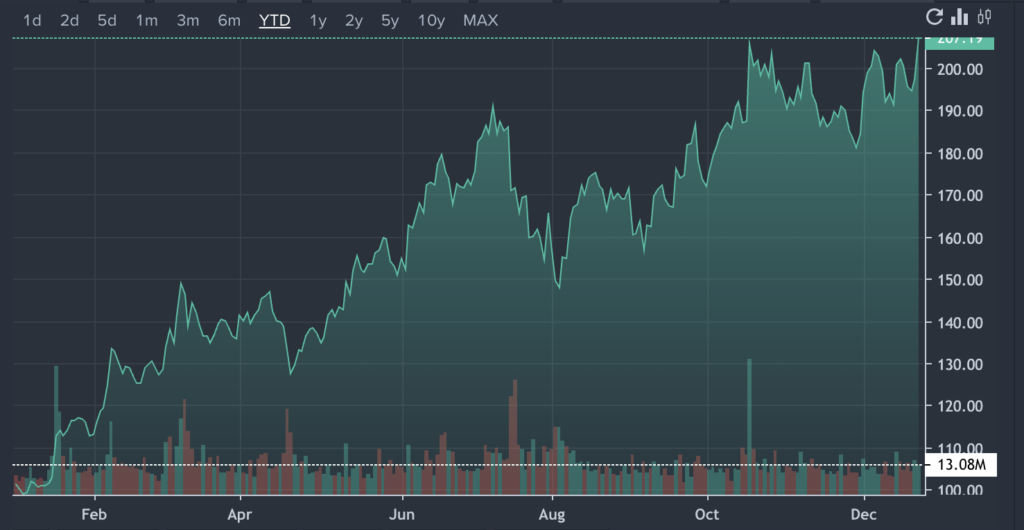Key Developments in Semiconductor Trade Policy
Taiwan Semiconductor Manufacturing Company Ltd. TSM saw its stock price increase on Monday after the Biden administration announced a trade investigation focusing on China’s semiconductor policies, particularly its handling of “legacy” semiconductors.
Understanding the Investigation: The initiative, officially termed the “Section 301” probe, may lead to higher tariffs on these components. Its primary goal is to counteract the expansion of China’s state-driven semiconductor industry, as reported by Reuters. This effort is part of the United States’ broader strategy to reduce China’s impact in the semiconductor market, which includes stricter export restrictions on advanced chips and manufacturing equipment.
Since January 1, the U.S. has imposed a 50% tariff on Chinese semiconductors, and there is a chance of additional tariff hikes. The investigation will assess how Chinese semiconductor activities impact crucial industries such as defense and automotive.
China’s Commerce Ministry criticized the U.S. probe, arguing that it could disrupt global semiconductor supply chains. In response, China has imposed restrictions on the export of key minerals like gallium and germanium, which are vital for chip production and advanced technology development.
The positive reaction in TSMC shares reflects market sentiments that reduced competition from Chinese semiconductor firms might advantage other global industry players.
Market Performance: TSMC’s shares closed 5.16% higher on Monday, finishing at $207.36, according to Benzinga Pro.

Next Steps: The ongoing situation will be monitored closely as trade negotiations and policies evolve.
Photo by Jack Hong via Shutterstock
Market News and Data brought to you by Benzinga APIs
